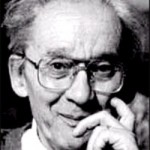Intentionality, Narrativity, Husserl & Ricoeur
Oct 25th, 2014 | By Marc Applebaum | Category: Feature My latest article in the Indo-Pacific Journal of Phenomenology explores the psychological meanings of narratives through Husserl’s phenomenology in dialogue with Ricoeur’s hermeneutics. Ricoeur (1975) wrote, “On the one hand, hermeneutics is erected on the basis of phenomenology and thus preserves something of the philosophy from which it nevertheless differs: phenomenology remains the unsurpassable presupposition of hermeneutics. On the other hand, phenomenology cannot constitute itself without a hermeneutic presupposition.”
My latest article in the Indo-Pacific Journal of Phenomenology explores the psychological meanings of narratives through Husserl’s phenomenology in dialogue with Ricoeur’s hermeneutics. Ricoeur (1975) wrote, “On the one hand, hermeneutics is erected on the basis of phenomenology and thus preserves something of the philosophy from which it nevertheless differs: phenomenology remains the unsurpassable presupposition of hermeneutics. On the other hand, phenomenology cannot constitute itself without a hermeneutic presupposition.”
According to philosophers such as Mohanty (1989) description and interpretation coexist within Husserl’s work and are envisioned as complementary rather than mutually exclusive approaches to inquiry. This essay argues that exploring the implications of this philosophical complementarity for psychological research would require distinguishing between the multiple meanings of “interpretation” and between differing modes of interpretation within qualitative data. Husserl’s model of passive and active intentionality and  Ricoeur’s theory of narrativity are examined in order to explore their relevance for research. It is argued that interview data can demonstrate both actively and passively intended dimensions, and the psychological meaningfulness of this complexity points to the relevance of not only of Husserl’s static analysis but his genetic analysis as well. Likewise, it is argued that Ricoeur’s work on narrativity and narrative identity is invaluable in grasping ways in which narrative data is intrinsically self-interpretive, expresses self-identity, and is both situated within and responsive to the larger social horizon within which the interview is given.
Ricoeur’s theory of narrativity are examined in order to explore their relevance for research. It is argued that interview data can demonstrate both actively and passively intended dimensions, and the psychological meaningfulness of this complexity points to the relevance of not only of Husserl’s static analysis but his genetic analysis as well. Likewise, it is argued that Ricoeur’s work on narrativity and narrative identity is invaluable in grasping ways in which narrative data is intrinsically self-interpretive, expresses self-identity, and is both situated within and responsive to the larger social horizon within which the interview is given.
Readers’ responses to the article are welcome!
-Marc Applebaum
References
Ricoeur, P. (1975). Phenomenology and hermeneutics. Nous 9 (1) 85-102.
 Follow
Follow email
email